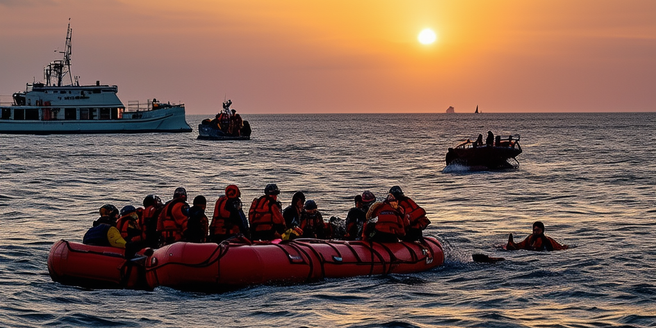
Understanding Boating Accident Liability
Determining liability in boating accidents requires understanding various factors, including boat operator negligence, equipment failure, and hazardous conditions. Operators must adhere to maritime laws, and failure to do so can result in liability. Thorough investigations often require the collaboration of maritime experts. Investigations often involve examining the actions of those involved, scrutinizing maintenance records, and assessing environmental conditions at the time of the accident. In addition, witness testimonies can provide crucial insights into the events leading up to the incident. Comprehensive investigations may also include reviewing communication logs and onboard safety protocols. Understanding these elements is crucial for establishing fault and ensuring that victims receive proper compensation. Expert legal advice can aid in navigating these complexities.
Types of Damages in Boating Accident Claims
Victims of boating accidents may be entitled to various types of damages. These can include medical expenses, both immediate and long-term, lost wages due to time away from work, and compensation for pain and suffering. Additionally, damages can cover property losses and costs of psychological counseling. It’s important to document all expenses and impacts meticulously to support your claim. Seeking professional legal advice early in the process can significantly influence the outcome. Each case is unique, and the specific damages awarded depend on the nature and severity of the accident. In many instances, third-party liability may also come into play, adding another layer of complexity to the claim. Legal guidance ensures that victims pursue all potential claims to receive comprehensive compensation for their losses.
Steps to Take After a Boating Accident
Immediately following a boating accident, ensure safety by checking for injuries and administering first aid. Contact authorities to report the incident and seek medical attention even if injuries seem minor. Collect information from other parties involved, including their contact details and insurance information. Taking photographs of the accident scene and any damages can be useful. Remember to secure any witnesses’ statements as they can be critical later. It’s also crucial to document the incident with a detailed written account. Make sure not to admit fault or make any statements that could be used against you later. Consulting a lawyer early on can help protect your rights and guide you through the claims process.
Choosing the Right Lawyer for Your Case
Selecting the right lawyer for a boating accident case involves considering their experience, expertise, and track record in similar cases. It can be beneficial to ask about their most recent cases and outcomes. Look for attorneys who specialize in maritime law and have a history of successful settlements and verdicts. Additionally, ensure they have a deep understanding of boating regulations and nuances of maritime law. Don’t overlook the importance of their communication skills and availability for your questions. Recommendations and reviews can provide insights into their reputation and client satisfaction. It’s important to have an initial consultation to discuss your case, gauge their understanding, and feel confident in their ability to represent your interests effectively.
Common Challenges in Boating Accident Cases
Boating accident cases present unique challenges, such as determining jurisdiction, interpreting maritime laws, and dealing with various liable parties. One of the primary challenges is figuring out which laws apply, as maritime cases often involve different regulations compared to those on land. Gathering sufficient evidence is often complicated by factors like weather conditions and the transient nature of watercraft. For example, strong currents or changes in weather can quickly alter the scene of an accident, making it difficult to collect accurate and timely information. Insurance companies may dispute claims or offer low settlements, complicating the victims’ pursuit of compensation. These companies often employ extensive legal teams to minimize their payouts, thereby increasing the difficulty for victims to secure fair settlements. Overcoming these challenges requires meticulous investigation, expert testimony, and skilled legal representation. Specialized legal practitioners need to conduct thorough investigations, often employing experts in marine engineering, navigation, and weather analysis to build strong cases. Attorneys must be well-versed in maritime laws and possess a deep understanding of the nuances of maritime activities to navigate the complexities and advocate for fair compensation for victims.
